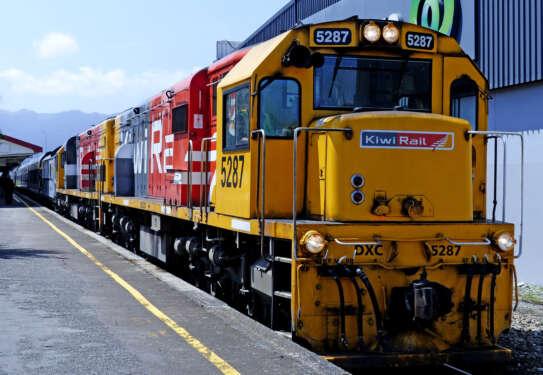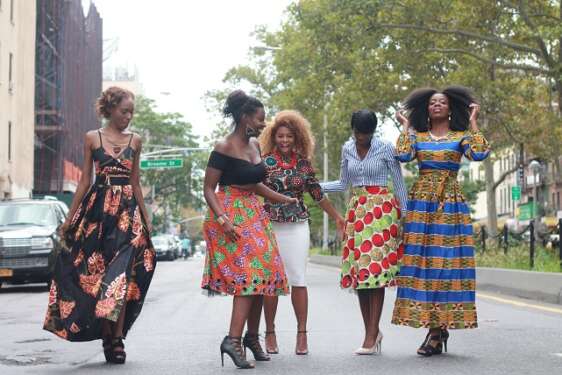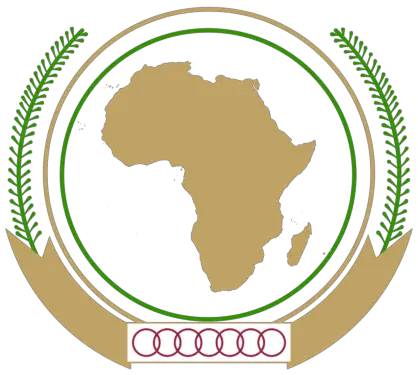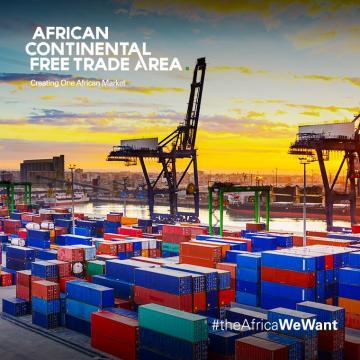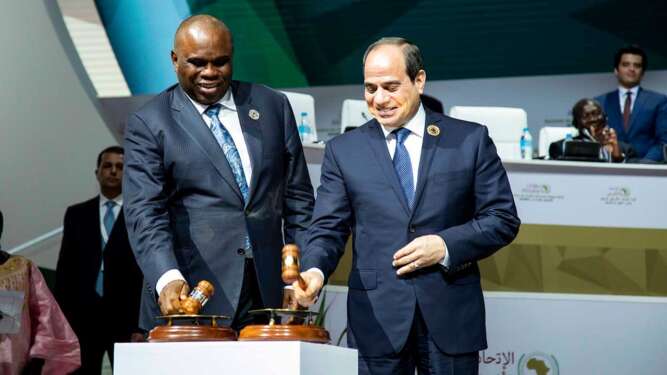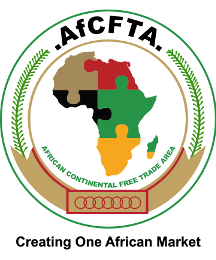- Kenya-Ethiopia Trade Relations: Legislators Advocate for Policy Alignment to Boost Ties
- Visualising the state of debt in Africa 2024
- Abu Dhabi radiates optimism as over 300 startups join AIM Congress 2024
- TLcom Capital Raises $154 million in Funding to Boost Its African Growth
- Africa’s $824Bn debt, resource-backed opaque loans slowing growth — AfDB
- LB Investment brings $1.2 trillion portfolio display to AIM Congress spotlight
- AmCham Summit kicks off, setting course for robust future of US-East Africa trade ties
- Why the UN is raising the red flag on the UK-Rwanda asylum treaty
Browsing: AfCTA
- Protectionism and non-tariff barriers persist between the two countries
- countries have varying processes which seriously delays the movement of goods due to the need for multiple certification processes across borders
- Harmonizing infrastructure projects key to boosting trade
Tanzania Kenya EAC Trade Investment Regulations
It is only through economic growth that the East African Community (EAC) can successfully realize its much-coveted regional integration. For this to happen, a delicate balance must be achieved between competition and cooperation; therein lies the dilemma, a race or partnership? As far back as two decades, in 2004, Kenya Uganda, and Tanzania, the founding partners of the East African Community, signed the Protocol for the Establishment of the East African Community (EAC) Customs Union that is known as the Customs Protocol yet to date bottlenecks remain.
Three years after the founders inked the Customs Protocol, the next parties followed suit, Burundi and Rwanda adopted the …
The AfCFTA gives Africa an opportunity to confront its trade and economic development challenges such as market fragmentation, small-scale national economies, a narrow export base, caused by shallow manufacturing capacity, and underdeveloped industrial regional value chains.
AfCFTA is one of the tools for making a fundamental structural transformation for Africa’s economy and placing it on the path of long-term industrial development. AfCFTA will also strengthen the continent’s bargaining position when engaging in trade negotiations with economic powers such as China and the European Union. This implies that trade will become more favourable for African products, and now when Africa partners with the likes of China and other countries, focus should be on capital supply as well as industrialisation.…
The cornerstone of a successful trade is the efficient distribution of goods from the source to all points of sale. As such, cultivating logistics and distribution channels is necessary for the successful implementation of the African Continental Free Trade Area (AfCFTA).
The continent is made up of over 50 different countries whose levels of development vary vastly. Each country needs to seek its solutions locally, but governments need to come together to improve intra-African trade and cross-border co-operation.
AfCFTA will undoubtedly be a breakthrough in reducing the cost of shipping in Africa and improving efficiency. The amount of time that will be spent on customs clearance is set to drop drastically. Currently, it takes more than a week at one-border stops in some countries. …
The African Union agenda 2063 is on course. After some delays due to covid, the African continental free trade area has become a reality. As part of the free trade area, the African Union passport will be availed this year. The passport launched in 2016 had been available only for diplomats and AU officials. It will now be rolled out to ordinary citizens of the African Union.
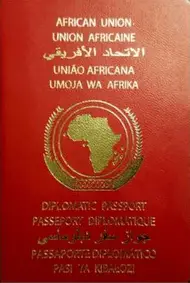
What will an African Passport mean?
The rationale for the passport is for African citizens to be able to cross all borders on African soil without a visa. The passport will facilitate easier movement for people to ease trade relations.
As African countries strengthen ties and seek to reap strength in numbers, the passport will spell an easier transition into seamless trade on the continent.
Modelled along the lines of the European Union passport, the passport will be biometric to prevent fraud and …
Africa’s fashion industry is a potential gold mine with the capacity to grow into a billion dollar industry. The fashion industry worldwide is estimated to be worth over $1.5 trillion. With the resources and creative minds in Africa, there is enormous capacity to take a more significant piece of this pie. Africa’s fashion scene is anchored on a vibrant culture and the mix of color, texture, and bespoke designs that make African fabric. From the traditional to the contemporary, African designers have an impeccable creative eye.
The industry has gained recognition on the international stage. For instance, African designer Deola Sagoe has dressed famous music stars like Rihanna. This points to the significant potential that can be realized to transform the fashion industry into a lucrative economic sector.
Young people must be groomed to realize the untapped potential that lies in the sector. It is particularly pertinent for young …
Ten African heads of state and government, as well as the president of the African Development Bank, were handed awards for their instrumental role in the realization of the African continental free trade area.
“As Africans, we are proud of the extraordinary effort made by our leaders towards the success of the AfCFTA.” Hailemariam Boshe, former Prime Minister of Ethiopia and Ae Group Patron
A consortium of African stakeholders banded together to show acknowledgment for the efforts undertakes towards realizing Africa’s dream. The stakeholders included AeTrade Group in collaboration with the African Union Commission, the African Business Council, the Pan African Chamber of Commerce and Industry, the Federation of West African Chambers of Commerce and Industry, and the East African Chamber of Commerce, Industry, and Agriculture.
The heads of state that received recognition included:
- Felix Tshisekedi, president of the Democratic Republic of Congo
- Egyptian President Ahmed Fattah Al-Sisi;
- His Majesty
African continent is making strides towards the realization of Agenda 2063. One of the key steps, the free trade agreement, was successfully launched on the 1st of January 2021 after having been delayed by Covid-19.
The trade agreement has hit the ground running. Already recording its first trade under the terms of the free trade treaty.
Ae Trade Group and Ethiopian airlines partnered for the transportation of momentous parcels- handmade trophies from the Kingdom of Eswatini to invoke the AfCTA trade. This trade marks the beginning of trading under the African Continental Free Trade Area.
Ethiopian Airlines -DHL is a logistics operation born from a 2008 partnership between the two entities which operate across Africa.
The first shipment of parcels was received in Ethiopia at the Addis Ababa Bole International Airport on the 1st of January amid pomp and fanfare with a ceremony organized to applaud the start of the …
The countdown to the commencement of trading under the African Continental Free Trade Area is drawing to an end.
The world celebrates the coming of a new year with the hope of a reprieve from the chaos and hardships that 2020 brought. For Africa, the New Year’s Eve celebrations bring hope for a brighter future. A future with Africa no longer the dark forgotten continent left behind by the rest of the world. Neither engulfed by poverty, inefficiency, and negativity nor identified by conflict and hopelessness.
A future where Africa stands shoulder to shoulder with economic giants. Where economies of scale and scope position African manufacturers favorably. Where African economies boast integrated efficiencies and world-class digital infrastructure. Where road networks and physical infrastructure on the continent take a turn for the better. Where Africa means business and has the trade statistics to prove it.
Africa is going for gold and …
READ ALSO: Why the African free trade area could be the game-changer for the continent& economies
Why Are Micro And Small Business A Subject Of Concern?
According to the World Bank, SMEs make up 90% of businesses in the world and cover more than 50% of the world’s employment. Formal small businesses contribute significantly to GDP. This contribution to GDP is significantly amplified when the informal sector is taken …
African Innovators have an opportunity to get funding for their Ideas through the new Africa Continental Free Trade Area (AfCFTA) Vision Challenge.
The challenge seeks Africa innovators and entrepreneurs who have compelling solutions to challenges affecting the continent’s Intra Africa trade.
Some of the areas identified to drive the AfCFTA agenda include Agriculture and Food Security, Education and Skills, Natural Capital and Environment, Technology among other sectors all aimed at advancing Intra – Africa trade.
Potential Investment in the ideas selected will be by Africa’s leading Development Finance Institutions & Banks that include AfDB, TDB, Afreximbank, BADEA, AFC, Equity Bank, Ecobank, CIB among others.
Contestants only have to register for an AfCFTA number at no cost at www.afcfta.app and then submit their entry through the online portal (https://www.afcfta.blog/
There are two deadlines for the submission of Ideas that include November 27, 2020 for the first







